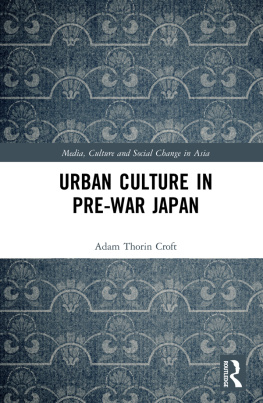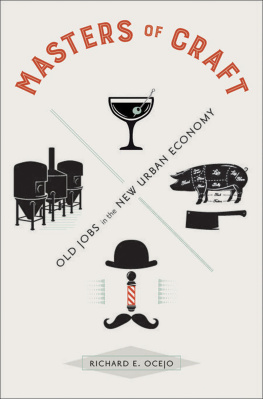First published 2009 by Paradigm Publishers
Published 2016 by Routledge
2 Park Square, Milton Park, Abingdon, Oxon OX14 4RN
711 Third Avenue, New York, NY 10017, USA
Routledge is an imprint of the Taylor & Francis Group, an informa business
Copyright 2009, Taylor & Francis
All rights reserved. No part of this book may be reprinted or reproduced or utilised in any form or by any electronic, mechanical, or other means, now known or hereafter invented, including photocopying and recording, or in any information storage or retrieval system, without permission in writing from the publishers.
Notice:
Product or corporate names may be trademarks or registered trademarks, and are used only for identification and explanation without intent to infringe.
Library of Congress Cataloging-in-Publication Data
Adam, SK.
Extinction or survival?: the remarkable story of an American urban tribe / SK Adam.
p. cm.
Includes bibliographical references and index.
ISBN 978-1-59451-594-1 (hardcover : alk. paper)
1. Tigua (Tiwa) IndiansTexasEl PasoEthnic identity. 2. Tigua (Tiwa) IndiansTexasEl PasoGovernment relations. 3. Tigua (Tiwa) IndiansCultural assimilationTexasEl Paso. 4. Federally recognized Indian tribesTexasEl Paso. 5. Gambling on Indian reservationsTexasEl Paso. 6. Ysleta del Sur Pueblo (El Paso, Tex.)History. 7. Ysleta del Sur Pueblo (El Paso, Tex.)Social life and customs. I. Title.
E99.T52A33 2009
305.8997496076496dc22
2008039243
Design and composition by Cindy Young.
ISBN 13: 978-1-594-51594-1 (hbk)
ISBN 13: 978-1-594-51595-8 (pbk)
I N THE EARLY 1960S, a small American Indian community situated on the outskirts of El Paso, Texas, was in trouble. It was not the first time this particular community had run into problems; indeed, during their three-hundred-year tenure in West Texas, trouble was the rule rather than the exception. The problem this time, however, would require the community to do something that it had never done before: ask for help from outsiders. The Tigua of Ysleta del Sur Pueblo had survived throughout much transition and turmoil over the years. The majority of their land had been stolen from them, and their rights to hunt, fish, and collect wild foods and plants had been abrogated. They had survived religious persecution, racial persecution, and extreme poverty. In fact, there was precious little left to take from this community, save a few acres of land and the run-down, dirt-floor shacks that the surviving members called home. The local government, however, had recently passed new provisions that would make the Tigua responsible for tax payments on their property, fees that the poverty-stricken tribe could never begin to pay. Now, on the verge of losing their homes, the Tigua turned reluctantly to El Paso attorney Tom Diamond, hoping that he could somehow help them.
Trouble, problems, and assorted difficulties had become the common companions of the Tigua Indian tribe. Additionally, the Tiguas willingness to help the various colonial governments fight hostile Indian groups meant that there was never a need for them to sign a treaty with the colonial government. That became important when the United States unilaterally recognized Indian tribes possessing signed treaties, a figurative stab in the back to peaceful or helpful groups like the Tigua. By the early 1900s, the situation had become bleak in the old pueblo (El Barrio de los Indios), and bad luck seemed to follow their every move. By that point in history, most of the Tigua landholdings had been stolen; high unemployment and poverty forced many community members to relocate; racism and anti-Indian sentiments meant danger for those who openly embraced their Indian heritage; both the state and federal governments had forgotten the Tigua existed; and anthropologists and other researchers were describing Tigua culture as moribund, if not already extinct.
The view from within the pueblo, however, was somewhat more optimistic. The community, constantly adjusting to their ever-changing circumstances (wrought by colonial subjugation), continued to follow the traditional rituals and sacred practices that had sustained them since time out of mind. Of course, small changes had to be introduced to account for the needs of their new reality. For example, certain rituals had to be adjusted to account for their new geographic location; they modified some practices based on their relationship with the various colonial powers; and the loss of their land forced them to change aspects of their traditional hunting and gathering practices. Change was nothing new to this culture, however, and the bearers of that culture had faith that they would survive through this period of difficulty, as they always had before. While the population numbers continued to drop in the old pueblo, the remaining tribal members continued to follow their traditional form of leadership, they maintained their sacred religious beliefs, and they continued to assist each other and outsiders alike. The core of their worldview as Pueblo Indians remained unchanged; indeed, tribal members expressed surprise when they learned in the early 1960s that that were, and had been, extinct.
Their luck appeared to be changing by the mid-1960s, as the discovery of this lost tribe reverberated throughout Indian Country and beyond. By 1968, the tribe had secured state recognition (and, ostensibly, federal recognition), along with the benefits that status implies. Money was granted for the development of a tourist complex, and a new housing reservation was built up the street from their old neighborhood. Although their financial position had improved, it was still difficult to survive on the meager amounts available through state funding, even when coupled with profits from tourism. To make matters worse, the state was dictating the terms of their continued support, and the Tigua were beginning to openly express the feeling that they had been better off before the state decided to offer its help. In fact, by the mid-1980s, the state was actively looking for a way to get out of the Indian business, so the decision by the tribe to seek federal recognition was largely supported in the Texas Statehouse.
Unfortunately, the process of moving from state to federal oversight, which should have transpired with relative ease, turned problematic from the start. In the first place, federal acknowledgment was a new concept, and the Interior Department, through the Bureau of Indian Affairs (BIA), was attempting to fine-tune the myriad details of the process. The Tigua, having already received state recognition and at least implicit federal recognition in 1968, opted to sidestep the BIA and go directly to Congress with hopes of passing a restoration bill. This path would greatly expedite the process, but the BIA protested against what it claimed was a blatant attempt by the Tigua to bypass the new process. Meanwhile, Texas, though happy to turn its financial obligations for the tribe over to the federal government, nonetheless loathed the idea that a sovereign, federally recognized Indian tribe might be turned loose within its borders. The state was against the idea of federal recognition, primarily because many feared that the tribe would enter into gaming, the hotbutton political issue of the day. The Tigua, of course, were very unhappy with the states position and felt that Texas was simply attempting to abrogate their rights as a Native American Indian community. On the verge of losing their meager state funding, however, the tribe reluctantly agreed to sign a deal that would force them to abide by the gaming laws of the state of Texas, until amended. Additionally, they were forced to agree to a tribal membership criteria that set their minimum blood quantum level at one-eighth, as well as agree to allow the laws of the state to be enforced on their reservation. Although tribal members were unhappy with the agreement, they felt that they had no choice but to go along with the offer. The recognition bill passed both houses of Congress in 1987, and the Tigua proudly took their place among the five-hundred-plus Indian tribes formally recognized by the United States.









